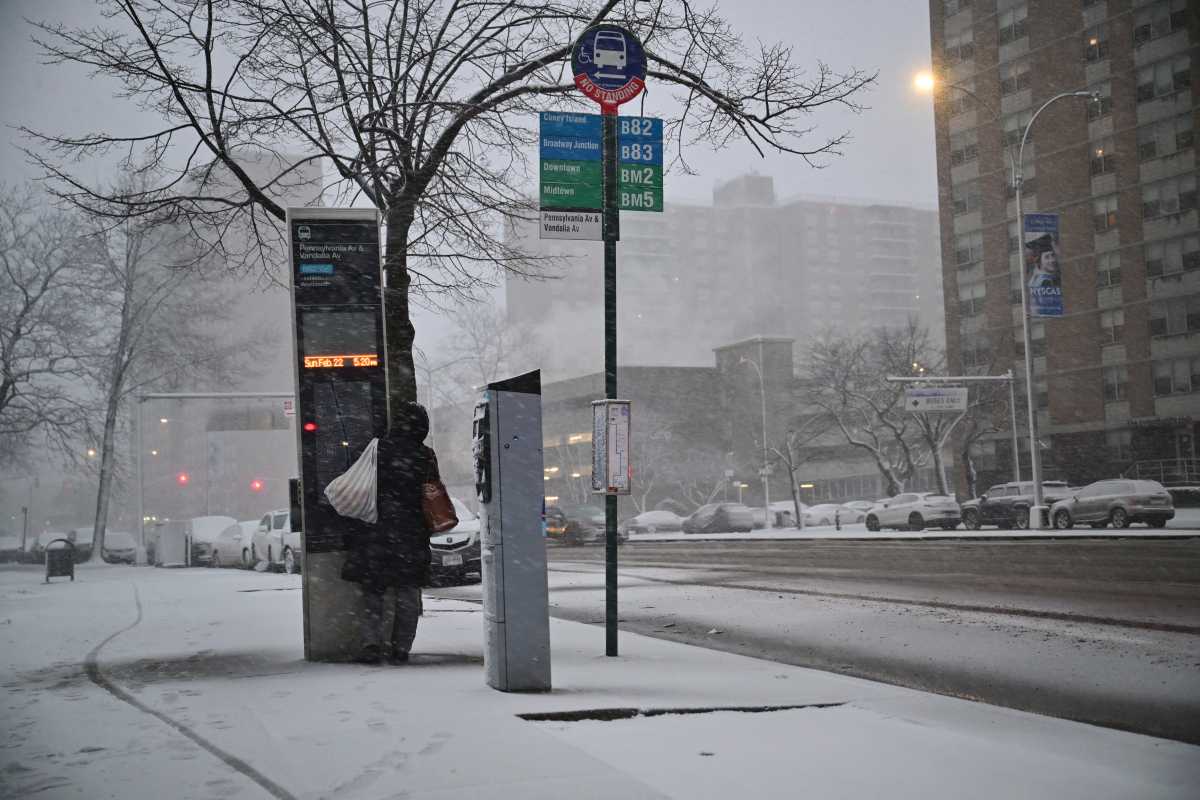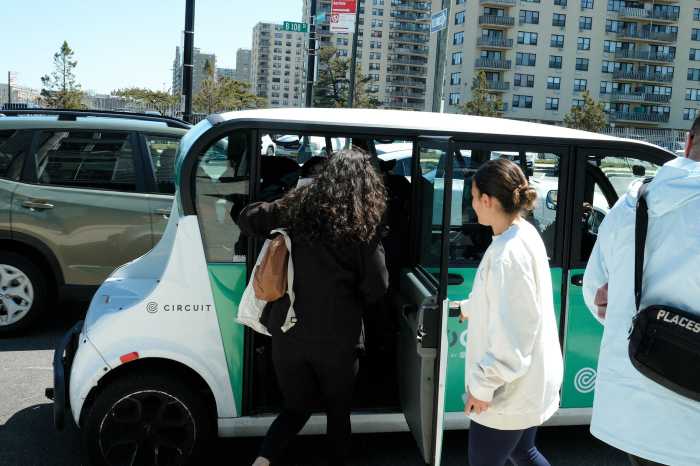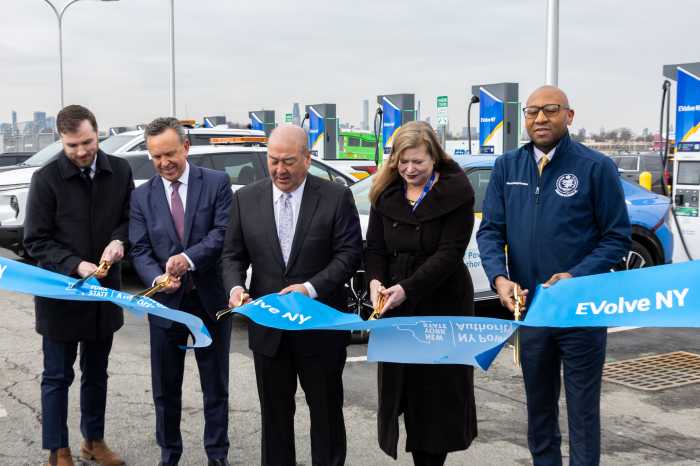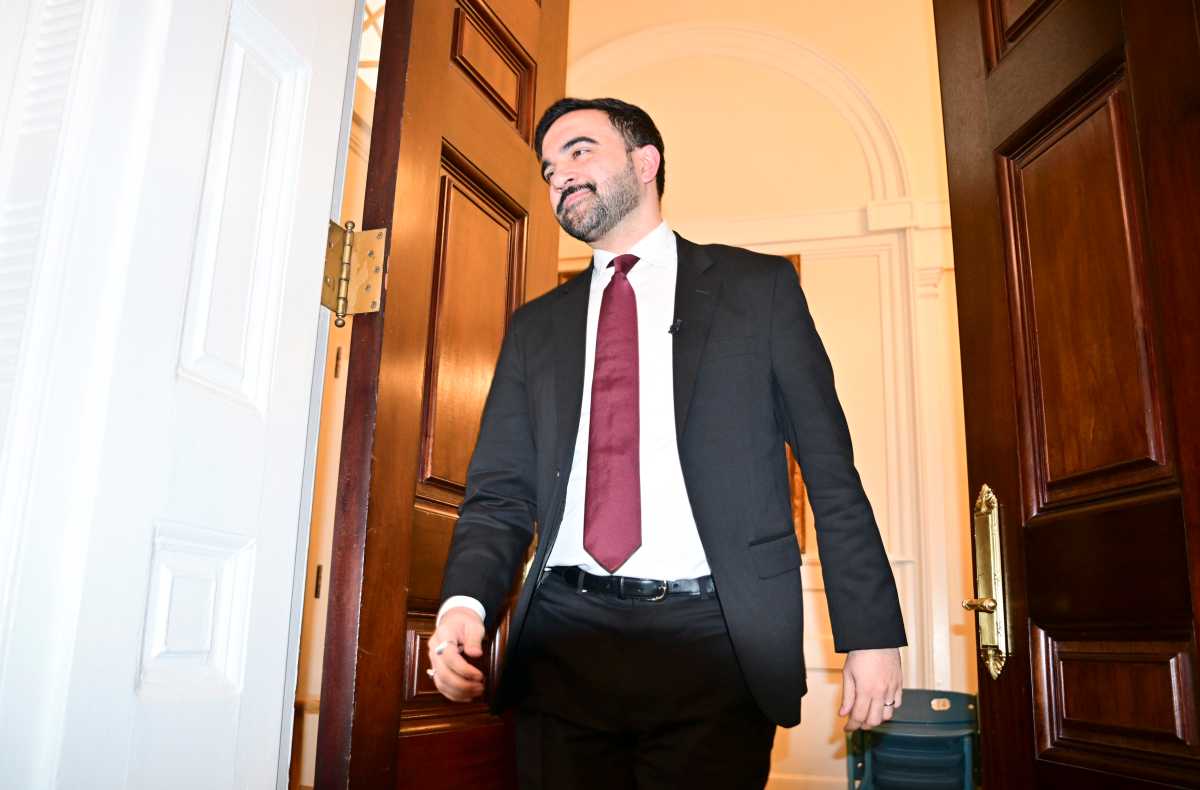By Mark Hallum
Gov. Andrew Cuomo’s executive budget address admitted that Fiscal Year 2019 would be a complicated one for the state in terms of closing a $4.4 billion deficit with a $168.1 billion spending plan.
But Cuomo made clear his intention to fix the Metropolitan Transportation Authority and establish a dedicated revenue stream by enacting congestion pricing — charging drivers in congested Manhattan neighborhoods.
“In many ways, this is going to be the most challenging budget that we’ve had to do. It intertwines a number of economic and policy and legal issues that makes the situation complicated. It’s not just the budget this year, it’s really an economic transformation plan that we’re talking about.” Cuomo said Tuesday before explaining how the Payroll Mobility Tax, which levies about $1.6 billion per year, could possibly go directly to the MTA as a dedicated revenue stream:
“We would change the law so that the MTA collects the tax itself. It now has a dedicate funding stream, can securitize it, it can get a better credit rating from it, it can finance the installation of the Fix New York City, the Penn Renovation, etc.”
Fix NYC was established by the governor as a panel to deliberate on how to enact congestion pricing at tolls going into Manhattan during peak hours. According to Cuomo, a report from Fix NYC was to be released at the end of the week defining hours, fees and geographic zones for congestion pricing, which will be collected through cashless tolling.
Queens pols have been vocally opposed to congestion pricing on East River bridges since the proposal was announced by Cuomo over the summer, Including Assemblyman David Weprin (D-Fresh Meadows).
“I am pleased to hear that the governor did not include tolls on the East River bridge crossings, which have been free since 1911, as part of his 2018 Executive Budget Proposal,” Weprin said. “As I’ve expressed before, tolls impose an unfair burden on the middle class, small businesses, and those who cannot access public transportation. I’d like to ensure that any congestion zone will keep the needs of all New Yorkers, including the many the working New Yorkers who often commute from the outer boroughs and who do not have easily available access to public transportation, in mind.”
On Jan. 4, during the State of the State address, Cuomo said he ordered state agencies to examine options to redevelop the 40-year-old Penn Station to protect against terrorist threats and said he would consider using eminent domain to expedite upgrades.
Riders Alliance Executive Director John Raskin praised Cuomo’s motivation to fix the transit system in his address, but said the state of the city’s subways are still a make-or-break situation for the governor.
“Gov. Cuomo today acknowledged a basic truth: our transit system is in crisis and it’s his responsibility to fix it,” Raskin said. “He is right to say fixing transit must happen this year. He is right that we can’t fix transit without a new long-term revenue source. He is right that congestion pricing is a fair and sustainable way to raise the money we need to modernize the subway.”
The test, Raskin said, will be whether Cuomo has the ability to make his proposal happen. “If the governor passes a true congestion pricing plan that actually fixes the subway,” Raskin said, “he can be the leader who rescues transit for millions of suffering riders. If not, he’s just another politician making promises. Riders are waiting to find out.”
Also in the budget address, Cuomo said the state is still waiting for the city to take responsibility for half the cost to MTA Emergency Action Plan devised by agency chair Joe Lhota to stabilize the subways in the short term until a comprehensive fix can be made.
The state is asking for a 50-50 split with the city on the $835 million plan, which has been a point of contention between Cuomo and Mayor Bill de Blasio.
The budget also proposes a 3 percent increase in school aid and takes aim at the opioid crisis by imposing a 2 percent surcharge per milligram on prescription pills.
Reach reporter Mark Hallum by e-mail at mhall




































